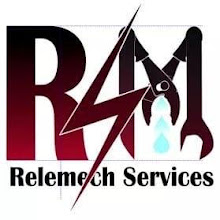You have just freshened up, put on your best outfit plus shoes then as you head out you step on to something. Looking closely, it is some of your leftovers from last night`s meals. It could even be a dog poop. Annoying, right? That is just but a simple example of what happens when you do not practice proper waste management around your homes and your environment as a whole.
So, what is waste management?
In simple terms this refers to collection, transportation, and disposal of garbage, sewage and other waste products. From Wikipedia this refers to “generation, prevention, characterization, monitoring, treatment, handling, reuse and residual disposition of solid wastes”. All this is done to minimise the wastes consequences on humans and environment.
There are several methods of waste management, some with even more negative impacts on the environment but most of them have proven effective with even better and even more effective ways being invented. Here are a few common ways of waste management:
1. Landfill: This refers to a carefully designed structure built into or on top of the ground, in which trash is separated from the area around it. Trash is isolated from the surrounding environment (groundwater, air, rain). This isolation is accomplished with a bottom liner and daily covering of soil. A sanitary landfill uses a clay liner to isolate the trash from the environment. This must not be confused with a compost pit as the trash do not decompose in a landfill
2. Incineration/Combustion: These are also referred to thermal treatment of waste. This process converts the waste into ash, gas and heat. There are two categories to this including:
- Incinerators - This is an uncontrolled combustion process without energy recovery.
- Boilers and Industrial Furnaces (BIFs)- used primarily for energy and material recovery and are also referred to as Energy-From-Waste(EFW) facility.
3. Recovery and Recycling: In simple terms, recycling refers to processing of used material into new useful products. This is a great way of preventing pollution. In addition, less energy and less raw material is used to come up with a new product. You can help with this process by ensuring all your garbage are sorted, separated and place in different labeled bin bags.
4.Plasma Gasification: A relatively new technology, Plasma gasification can break waste down to 1/300th of its original size by using ionized gases to produce temperatures greater than 3 times the surface temperature of the sun. During the treatment solid waste by plasma gasification, the waste’s molecular bonds are broken down as result of the intense heat in the vessels and the elemental components. The gas from this process is called Synthetic gas or Syngas
5. Composting: Simply put, this is natures way of recycling. Composting is a natural biological process, carried out under controlled aerobic conditions (requires oxygen). In this process, various microorganisms, including bacteria and fungi, break down organic matter into simpler substances. The effectiveness of the composting process is dependent upon the environmental conditions present within the composting system i.e. oxygen,temperature, moisture, material disturbance, organic matter and the size and activity of microbial populations.
In a nutshell, waste management is a responsibility of each and everyone of us for the impacts of poor waste disposal practices on the environment not only causes harm to our health but also deplete mother Earth of the limited resources. It is a simple as re-using that coke bottle, minimising use of that inorganic shopping bag, finishing your meals and properly utilising the minimal Earths resources.
It is just as simple as involving Building Services Engineers and environmental proffessionals in your constructions. Talk to us.












